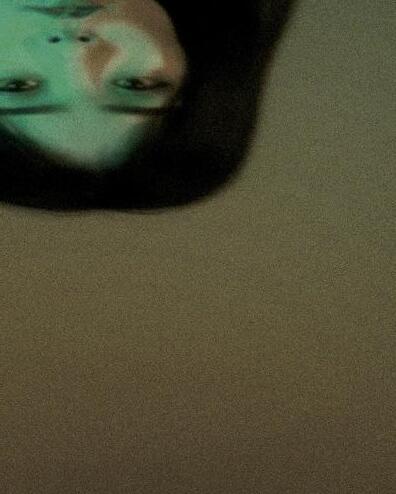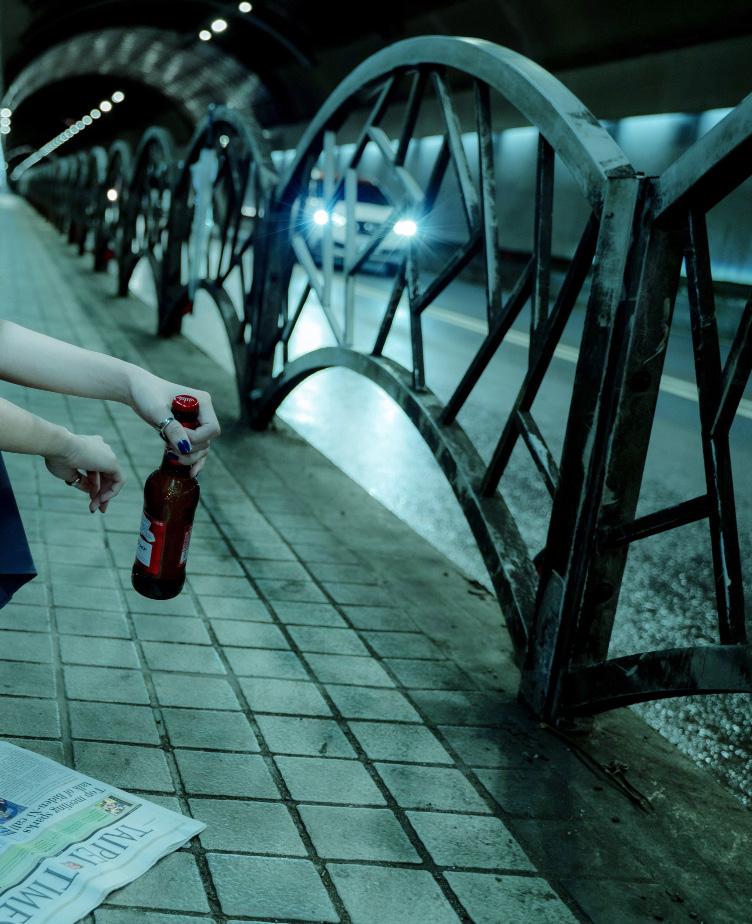can‘t stop spiraling about things you can‘t even change?


can‘t stop spiraling about things you can‘t even change?

need a little break from reality?
tired of living the same day over and over?

introduction to escapism
p. 4 - 7
back in time
p. 8 -13
media
p. 14 - 23
getting high to get away
p. 24 - 25
escaping escapism
p. 32 - 43
leaving reality can get a bit risky, so stay safe!

but dont forget to enjoy yourself too, that is the whole point.
is mental diversion from unpleasant or boring aspects of daily life, typically through activities involving imagination or entertainment.
Escapism also may be used to occupy one‘s self away from persistent feelings of depression or general sadness
Escapism is far from being a novel phenomenon of modern life, as people have always consumed alcohol and drugs, gone into trances to expand their consciousness, or created dream worlds in art and words as a way of escaping a sometimes brutal reality. Yet escapism is more relevant today than ever before, because over the last decades so many products have been made available by the media and electronics industries that allow everyone to escape reality on a scale never before known.
The escape from reality is often rooted in not having to deal with the basic things in life, be it personal fulfilment, relationships or general satisfaction with one‘s situation in life compared to the imagined life plan. But there are also other reasons that are far more harmless. Relaxation from everyday life, a search for knowledge or even the simple desire for sheer pleasure can be satisfied with escapism. Books, films and fairy tales immerse us in make-believe worlds that are more imaginative than a boring day at the office. We meet heroes with whom we can identify and through whom we experience an adventure that doesn‘t exist. Meditation can also be a positive kind of escapism that serves to relax and raise consciousness. Creating a TikTok video for fun with crazy dance routines that we would never dare to perform at a corporate event. All these can be reasons for escapist behaviour. As the world continues to change, more and more people are looking for ways to escape reality. Whether it be through daydreaming, excessive media consumption, using drugs or alcohol, or even virtual reality, the desire to escape reality has been growing. There are many reasons why people escape reality. For some, it’s a way to block out the pain and difficulty of life. When faced with overw-
As the world continues to change, more and more people are looking for ways to escape reality. Whether it be through daydreaming, excessive media consumption, using drugs or alcohol, or even virtual reality, the desire to escape reality has been growing. There are many reasons why people escape reality. For some, it’s a way to block out the pain and difficulty of life. When faced with overwhelming emotions such as depression, anxiety, guilt, or shame, it can be easier to take refuge in an altered state of consciousness. For others, it’s a way to disconnect from the stress and pressures of everyday life. These people seek solace in a fantasy world that provides a sense of escape and refuge. The Norwegian psychologist Frode Stenseng has presented a dualistic model of escapism in relation to different types of activity engagements. He discusses the paradox that the flow state (Csikszentmihalyi) resembles psychological states obtainable through actions such as drug abuse, sexual masochism, and suicide ideation (Baumeister). Accordingly, he deduces that the state of escape can have both positive and negative meanings and outcomes.



in another universe, my window is open and i‘m laying

i am twelve years old. nothing bad has ever happened to me.
But this tendency to take refuge in nostalgia can be dangerous in its own right, promoting an ignorant and euphemistic view of history by forgetting or glossing over uncomfortable truths. For some people, nostalgia is seen as an escape from the daily grind. We long for past times when life seemed easier or more fulfilling - without having to confront current hardships and anxieties. But escaping into nostalgia can be problematic because it ignores or obscures difficult realities that still plague society today.
In recent years, the nostalgia of the 1980s has become increasingly popular. This trend can be seen in television shows, movies, fashion and music. It is a much-needed form of escapism from the present day world.
The 1980s is an era known for fun and optimism – it was when disco made its comeback, when pop music was at its best, when we had funny and endearing films that we still remember today. It was also a decade associated with innocence and childhood memories; this is why so many people find themselves looking back fondly on these times. It’s not just about the entertainment either; as much as anything else it’s about getting away from life as it currently is and escaping into a simpler time –even if just for an hour or two at a time. For many people this is a great way to relax and unwind in what can otherwise be stressful lives full of responsibilities and commitments. Whether through watching reruns of classic TV shows such as The A-Team or listening to old school tunes like Rick Astley’s Never Gonna Give You Upnostalgia from the 80‘s offers a lot of us an opportunity to escape our current realities and embrace simpler times once again.
Nostalgia is often thought of as a positive emotion, a way to relive our past and escape the difficult realities of the present.
nostalgia can hit you like a train when you least expect it

it‘s overwhelming to be so aware of forgetting and rembering at the same time

sometimes the smallest detail will take you back to a specific day, and for an instant you know excatly how being alive felt back then


There are individuals who use nostalgia to avoid facing present day societal issues like climate change and inequality. Instead of confronting these pressing matters directly, they use nostalgia as a way to ignore them altogether by watching older films or reading books with outdated values and worldviews that no longer reflect modern society. This creates an ignorant bubble where they deny reality while reinforcing stereotypes and narratives that may not actually represent what is going on today.
For example, some may remember aspects of colonialism such as exploration and expansion fondly but omit details about slavery or other atrocities associated with it due to its uncomfortable nature. This type of attitude fails not only to accurately portray history but also prevent us from truly understanding our current situation or making real progress towards social justice goals today. Although nostalgic feelings can provide comfort during difficult times, it should not be relied upon too heavily since escaping into its embrace can lead us into dangerous territory – one where we ignore reality instead of confronting it head-on and becoming complacent about injustices under the guise of “remembering fondly” the past instead addressing them properly now.. Instead we should strive towards meaningful engagement with history so we can better understand our current situation – warts and all – while actively attempting towards creating real change going forward rather than relying on false hope found in memories alone.
Moreover, nostalgia can also have a euphemistic quality in which certain elements of history are remembered fondly while others are conveniently forgotten or glossed over entirely.
its

not reality but still feels so


In media psychology, escapism is considered an important motive for media use. According to the escapism thesis, media are used both to satisfy affective needs (escapism) and cognitive needs (knowledge enhancement). This approach focuses on the motivation of the media user. According to this approach, media offers are chosen to escape from everyday life, so that tensions generated by social roles experienced in everyday life can be relieved.
Media texts offer themselves as a means of escapist use because they grant the viewer imaginary gratifications in a risk-free space.
Especially fictional characters and unrealistic adventures facilitate the escape from reality. The escapism thesis is criticised in particular with regard to its lack of a more far-reaching psychological foundation. Nevertheless, it belongs to the fixed stock of need or motive research in media studies.
are thus forgetting and escaping from one‘s own problems as well as passive relaxation and the generation of emotions and distraction from rules and norms of reality.
They know that nothing can happen to them and that they can exit or switch off at any time; they do not have to take responsibility and can still step out of their everyday roles and take refuge in the compensatory media world.
By offering a vast variety of media and analysing what content we love to spend ours watching they manage to keep us entertained for hours. That source of high quality entertainment, curated personally for each user and accessible anytime is highly addicting but at the same time almost impossible to avoid nowdays.



The song “Oh No!” by Marina is a powerful testament to the disconnection that is created when one becomes overly dependent on media to provide emotional fulfillment. The line “Tv taught me how to feel, now real life has no appeal” serves as a warning to all of us that excessive media consumption can be dangerous. This song speaks to the problems that arise when media provides a false sense of reality and escapism through its glossy and often unrealistic portrayal of life. It could be seen as a reflection on the way media can shape our emotions and our understanding of the world.

-
why get lost in fiction, when you can alter your

Escapism is defined as the tendency to seek distraction and relief from unpleasant realities, especially by seeking entertainment or engaging in fantasy. This definition perfectly describes the behavior of those who abuse drugs.
They may use drugs as a way to temporarily forget their problems and focus on something else. The relationship between escapism and drug abuse is complex. On one hand, drug use can be seen as an act of escapism because it allows people to temporarily forget their problems and focus on something else. On the other hand, drug use can also be seen as a form of self-medication; people may use drugs in order to cope with difficult emotions or situations that they are
medical reasons for using drugs are often trying to escape from the current situation, whether it be an unhappy home life, financial problems, or any other type of stressor.
unable to face without assistance. This can lead to more serious forms of addiction if not addressed properly. It is important to understand that there are many factors at play when it comes to drug abuse and its relation to escapism. While some people may turn to drugs as a way of escaping reality, others may do so out of desperation or even boredom.
Treatment options such as counseling and support groups can help individuals gain insight into why they are using drugs in the first place and how they can better cope with difficult emotions without resorting to substance abuse.
In either case, it is important for those struggling with addiction to seek help before their situation becomes worse.




once again faced with reality.
Many addicts turn to their substance of choice as a way to escape reality. They abuse a mood-altering substance as a way to find relief from problems in their daily life, whether related to work, relationships, self-image, or financial problems. Often, they find themselves living a
The modern world is filled with stressors, and chronic stress is one of the biggest contributors to many of the most prevalent preventable diseases, such as diabetes, cancer, and heart disease. Stress is also one of the biggest risk factors for alcohol or drug addiction. Just as people turn to these substances to avoid emotional or psychological distress, they often turn to addictive substances to relax after a stressful day. Doing so on occasion may not cause a problem; however, when a person consistently does drugs or drinks heavily to deal with stress, especially chronic stress, it increases a person’s risk of developing an addiction.
Many people struggling with intense emotional distress, trauma, or a mental health condition turn to drugs as a way to self-medicate. The substance of choice provides a small amount of relief, until they are once again faced with reality. If they do not get the help they need to overcome their issues and healthily manage emotions, they will just continue drinking alcohol or using drugs to escape reality. In time, their body will build up a tolerance and they will become dependent upon the substance. In addition to their physical addiction to the substance, they will typically develop an emotional dependence on the substance.
As soon as the effects of the drugs wear off, the reality kicks in.
escapism, and denial, which further perpetuates their problem rather than fixing it.


French-algerian writer Albert Camus considered “philosophical suicide” as one possible reaction to the realization that life has no objective meaning. Philosophical suicide can be the result of many forms off escapism, all ways of muting thoughts about the meaninglessness of life. This can either be achieved by forcing yourself to believe in something that gives life an objective meaning or by “turning your brain off” by excessive media or drug consumption. The reason he discards it as an appropriate reaction to the irrationality and futility of life is, that it doesn’t actually offer a solution to it, it only makes you ignore or forget about it. He argued that humans should instead embrace the absurdity of life and accept the fact that life has no ultimate meaning. According to Camus, accepting the absurdity of life is actually an act of liberation, as it allowed humans to focus on the present moment and appreciate the beauty of life. He believed that embracing the absurdity of life was the only way to truly find joy in life and to avoid nihilism. Thus, Camus‘ philosophy of absurdism encourages humans to accept the absurdity of life, and to accept that life has no ultimate meaning. He argued that humans should instead appreciate the present moment and live life to the fullest, without the need to define their lives by an ultimate purpose. This is why he was against philosophical suicide, as he believed that it prevented humans from truly appreciating and living life to the fullest.
stop trying to escape the absurdity of life








Interviewer: What are some benefits of engaging in healthy forms of escapism?
Dr. psych. Lekygel: Engaging in healthy forms of escapism allows us to take a break from our problems and gain some emotional distance. This can help us gain perspective and find solutions that we may not have seen before. It also allows us to reduce our stress levels, clear our minds, and focus on more positive activities. In addition, by engaging in hobbies we enjoy, we can more easily access our sense of self-efficacy and selfconfidence. This can be especially beneficial for people who have struggled with depression or anxiety. Finally, engaging in healthy ways of escapism can provide us with a sense of joy and pleasure that is essential for our overall wellbeing.
Interviewer: There are some natural ways of escapism that people may be tempted to lean on. Can you tell us about that?
Dr. psych. Lekygel: Some common natural ways of escapism that people may be tempted to lean on are drug and alcohol use, overworking, eating too much or too little, procrastination, and avoidance of social activities. These behaviors can often provide temporary relief from stressful situations, but they can also become unhealthy habits.
Interviewer: Which healthy alternatives to these forms of escapism would you recommend?
Dr. psych. Lekygel: Healthy alternatives to these forms of escapism include engaging in physical activity like walking, running, cycling, or swimming. Taking up a hobby such as painting, photography, or writing can be a great way to explore creative outlets. Connecting with supportive friends and family can also provide comfort and support. Additionally, seeking professional help to discuss difficult emotions can sometimes be beneficial.
this can help us to gain perspective and find solutions
Examples of healthy forms of escapism include reading a book, listening to music, going for a walk, or engaging in any kind of creative activity or hobby.
These activities can provide a sense of relaxation, perspective, and clarity. They can also help with emotional regulation, allowing us to step back from the situation and make better choices.

painting, photography, or
writing can be a great way
to explore creative outlets.
Connecting with supportive
friends and family can also
provide comfort and support.
Additionally, seeking profes -
sional help can sometimes
be beneficial.
Faculty of Design and Art Free University of Bolzano - Bozen
Course
WUP 22/23 1st semester foundation course
Bachelor in Design and Art - Major Design
Product Module
Editorial Design
Publication designed by Maxie Lenz
esc(apsim) - Magazine
Supervision
Prof. Antonino Benincasa
Amedeo Bonini
Rocco Lorenzo Modugno
Format 200 x 250 mm
Fonts
Futura Bk BT
Futura Hv BT
Glitther Syavina Freebies
Binding
Kettle Stitch Binding
Paper
Inside pages - Color Copy Uncoated, 160g/m²
Cover - Color Copy Uncoated, 250g/m²
Text sources
Generated by Playground Open AI
Filmlexikon Uni Kiel (modified)
Serenity (modified)
Imagery
Visual Artists:
Thomas de Luze, Alexander Krivitskiy (Cover)
Alexandre Debiève (p. 2-3)
Roman Davydko (p.6)
Michel Catalisano (p.7)
Sandy Ravaloniaina (p.8-9)
Yang Miao, Ihor Malytskyi, Amy Humphries (p.11)
Hans Vivek (p.12)
Elia Pellegrini (p.14-15)
Mo Eid (p. 17)
Sam Balye (p. 20)
Cottonbro Studio (p.24-25)
Red- heart Li (p.28-29)
Michael Schiffer (p. 32-33)
Chris Linnett, Alexander Krivitsky (p. 36-37)
Тямаев Миша, Kool Shooters (p. 38-39)
Syh (p. 41)
Platforms:
Unsplash
Pexels
Midjourney
Printed
Bozen-Bolzano, January 20223
Digital Print